
Find Help
More Items From Ergsy search
-

What is HIV?
Relevance: 100%
-

What are the symptoms of HIV?
Relevance: 99%
-

What is HIV / AIDS?
Relevance: 96%
-

How is HIV diagnosed?
Relevance: 90%
-

Sexual Health - HIV Testing
Relevance: 88%
-

Are there vaccines available for HIV?
Relevance: 87%
-

How is HIV transmitted?
Relevance: 87%
-

HIV and pregnancy | NHS
Relevance: 87%
-

What is the difference between HIV and AIDS?
Relevance: 86%
-

How can HIV be prevented?
Relevance: 84%
-

HIV - My Story - Florence | NHS
Relevance: 83%
-

Can people with HIV lead normal lives?
Relevance: 82%
-
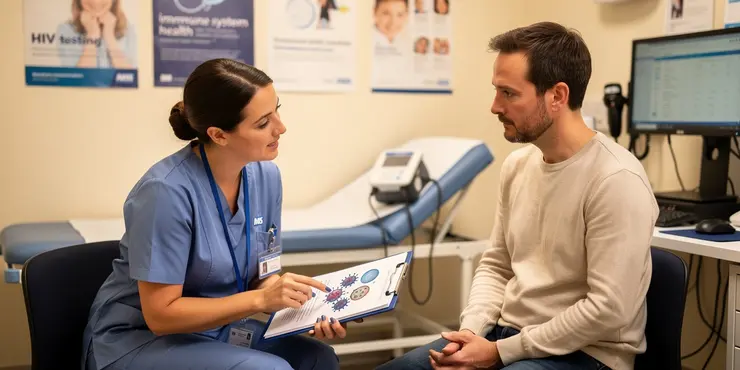
How does HIV affect the immune system?
Relevance: 79%
-

Is HIV only a concern for certain groups of people?
Relevance: 78%
-

Can HIV be transmitted through insect bites?
Relevance: 78%
-
Can HIV be transmitted through blood transfusions?
Relevance: 77%
-
What role does stigma play in the HIV epidemic?
Relevance: 74%
-

Is it safe for a partner of someone with HIV to have children?
Relevance: 74%
-

How often should someone get tested for HIV?
Relevance: 72%
-

Can HIV be cured?
Relevance: 64%
-
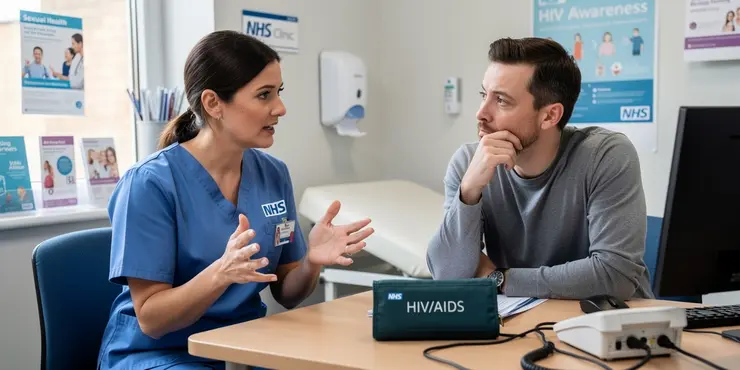
What is AIDS?
Relevance: 51%
-

The symptoms of gonorrhoea
Relevance: 49%
-

What are the symptoms of norovirus?
Relevance: 42%
-

What are the symptoms of Rubella?
Relevance: 42%
-

Are there symptoms of an HPV infection?
Relevance: 41%
-

Symptoms of coeliac disease
Relevance: 41%
-

What are the symptoms of measles?
Relevance: 41%
-

What are the symptoms of measles?
Relevance: 41%
-

What are the symptoms of measles?
Relevance: 41%
-

What are the symptoms of SAD?
Relevance: 41%
-

What are the symptoms of BPH?
Relevance: 41%
-

What are the symptoms of chickenpox?
Relevance: 41%
-
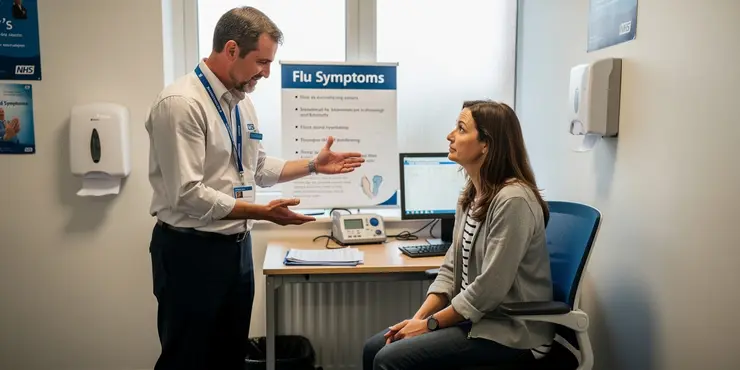
What are the symptoms of flu ?
Relevance: 41%
-

What are the symptoms of whiplash?
Relevance: 41%
-
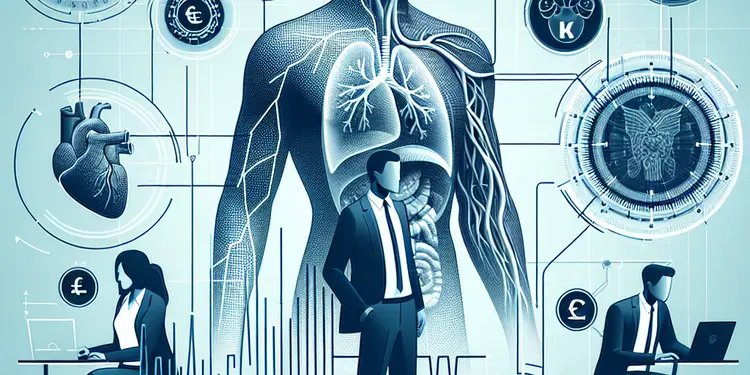
What are the symptoms of hypotony?
Relevance: 41%
-

What are the symptoms of sunburn?
Relevance: 41%
-

Symptoms of flu (influenza)
Relevance: 41%
-

How soon do symptoms appear after infection?
Relevance: 40%
-
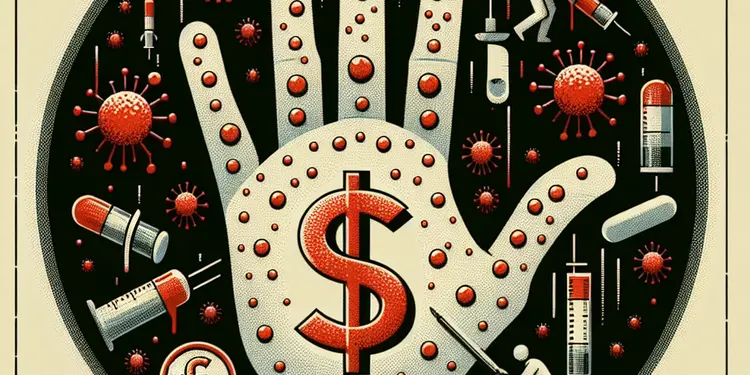
What are the symptoms of scabies?
Relevance: 40%
-

What are the symptoms of shingles?
Relevance: 40%
Introduction
Human Immunodeficiency Virus (HIV) is a virus that targets the immune system, specifically the CD4 cells, which are crucial for maintaining the body's ability to fight infections. If left untreated, HIV can progress to Acquired Immunodeficiency Syndrome (AIDS). Understanding the symptoms of HIV is vital for early diagnosis and treatment. This article outlines the common symptoms of HIV present at different stages of the infection.
Acute HIV Infection
Acute HIV infection, also known as primary HIV infection, typically occurs within 2 to 4 weeks after the virus has been contracted. During this phase, some people experience flu-like symptoms, while others may not notice any symptoms at all. The most common symptoms during this stage include:
- Fever
- Swollen lymph nodes
- Sore throat
- Rash
- Muscle and joint aches
- Headache
- Nausea and vomiting
- Diarrhoea
Chronic HIV Infection
After the initial phase, the infection moves to the chronic stage, also known as the clinical latency stage. This phase can last for several years, during which the virus is still active but reproduces at lower levels. Most individuals do not show any visible symptoms during this stage, which makes it challenging to detect the infection without testing. However, some people might experience persistent swelling of lymph nodes.
Progression to AIDS
If untreated, HIV eventually progresses to AIDS, the last stage of HIV infection. At this point, the immune system is severely damaged and susceptible to opportunistic infections and certain cancers. Symptoms of AIDS include:
- Rapid weight loss
- Recurring fever or profuse night sweats
- Extreme and unexplained tiredness
- Prolonged swelling of the lymph glands
- Diarrhoea lasting more than a week
- Sores in the mouth, anus, or genitals
- Pneumonia
- Red, brown, pink, or purplish blotches on or under the skin or inside the mouth, nose, or eyelids
- Memory loss, confusion, or other neurological disorders
Conclusion
Recognizing the symptoms associated with HIV infection is crucial for early detection and treatment. While symptoms can vary significantly from person to person, understanding the common signs at different stages helps in seeking timely medical advice. For those at risk or experiencing symptoms, regular testing and consultation with healthcare providers in the UK are recommended to manage health effectively.
Introduction
HIV is a virus that makes it hard for your body to fight sickness. It attacks important parts of your body's defense system, called CD4 cells. If you don't treat HIV, it can turn into a more serious illness called AIDS. Knowing the signs of HIV helps you find and treat it early. This article talks about the signs you might see at different times when you have HIV.
Acute HIV Infection
Acute HIV infection happens soon after you get the virus, usually in 2 to 4 weeks. Some people feel like they have the flu, but others feel fine. Common signs during this time are:
- Fever (feeling very hot)
- Swollen lymph nodes (lumps in your neck or underarms)
- Sore throat
- Rash (red spots on the skin)
- Muscle and joint aches (body pains)
- Headache
- Nausea and vomiting (feeling sick and throwing up)
- Diarrhoea (loose, watery poop)
Chronic HIV Infection
After the first part of HIV, it moves to another stage called chronic infection. This can last many years. The virus is still there but is quieter. Most people don't feel any different, which makes it hard to know you have HIV without a test. Some people might have swollen lymph nodes for a long time.
Progression to AIDS
If you don't treat HIV, it can become AIDS, which is very serious. Your body's defense system gets very weak, and you can get other serious illnesses. Signs of AIDS can be:
- Quick weight loss
- Fever or lots of sweating at night
- Feeling very tired all the time
- Swollen lymph glands that don't go away
- Diarrhoea for more than a week
- Sores in the mouth, butt, or private parts
- Pneumonia (lung sickness)
- Red, brown, or purple spots on skin or in mouth
- Memory loss or confusion
Conclusion
Knowing the signs of HIV helps you find and treat it early. The signs can be different for everyone, but knowing what to look for helps you get medical help in time. If you think you might have HIV, get tested and talk to a doctor. This helps you stay healthy. There are tools like picture cards and medicine planners that can help you manage your health better.
Frequently Asked Questions
Useful Links
This website offers general information and is not a substitute for professional advice.
Always seek guidance from qualified professionals.
If you have any medical concerns or need urgent help, contact a healthcare professional or emergency services immediately.
Some of this content was generated with AI assistance. We’ve done our best to keep it accurate, helpful, and human-friendly.
- Ergsy carfully checks the information in the videos we provide here.
- Videos shown by Youtube after a video has completed, have NOT been reviewed by ERGSY.
- To view, click the arrow in centre of video.
- Most of the videos you find here will have subtitles and/or closed captions available.
- You may need to turn these on, and choose your preferred language.
- Go to the video you'd like to watch.
- If closed captions (CC) are available, settings will be visible on the bottom right of the video player.
- To turn on Captions, click settings .
- To turn off Captions, click settings again.
More Items From Ergsy search
-

What is HIV?
Relevance: 100%
-

What are the symptoms of HIV?
Relevance: 99%
-

What is HIV / AIDS?
Relevance: 96%
-

How is HIV diagnosed?
Relevance: 90%
-

Sexual Health - HIV Testing
Relevance: 88%
-

Are there vaccines available for HIV?
Relevance: 87%
-

How is HIV transmitted?
Relevance: 87%
-

HIV and pregnancy | NHS
Relevance: 87%
-

What is the difference between HIV and AIDS?
Relevance: 86%
-

How can HIV be prevented?
Relevance: 84%
-

HIV - My Story - Florence | NHS
Relevance: 83%
-

Can people with HIV lead normal lives?
Relevance: 82%
-

How does HIV affect the immune system?
Relevance: 79%
-

Is HIV only a concern for certain groups of people?
Relevance: 78%
-

Can HIV be transmitted through insect bites?
Relevance: 78%
-
Can HIV be transmitted through blood transfusions?
Relevance: 77%
-
What role does stigma play in the HIV epidemic?
Relevance: 74%
-

Is it safe for a partner of someone with HIV to have children?
Relevance: 74%
-

How often should someone get tested for HIV?
Relevance: 72%
-

Can HIV be cured?
Relevance: 64%
-

What is AIDS?
Relevance: 51%
-

The symptoms of gonorrhoea
Relevance: 49%
-

What are the symptoms of norovirus?
Relevance: 42%
-

What are the symptoms of Rubella?
Relevance: 42%
-

Are there symptoms of an HPV infection?
Relevance: 41%
-

Symptoms of coeliac disease
Relevance: 41%
-

What are the symptoms of measles?
Relevance: 41%
-

What are the symptoms of measles?
Relevance: 41%
-

What are the symptoms of measles?
Relevance: 41%
-

What are the symptoms of SAD?
Relevance: 41%
-

What are the symptoms of BPH?
Relevance: 41%
-

What are the symptoms of chickenpox?
Relevance: 41%
-

What are the symptoms of flu ?
Relevance: 41%
-

What are the symptoms of whiplash?
Relevance: 41%
-

What are the symptoms of hypotony?
Relevance: 41%
-

What are the symptoms of sunburn?
Relevance: 41%
-

Symptoms of flu (influenza)
Relevance: 41%
-

How soon do symptoms appear after infection?
Relevance: 40%
-

What are the symptoms of scabies?
Relevance: 40%
-

What are the symptoms of shingles?
Relevance: 40%


